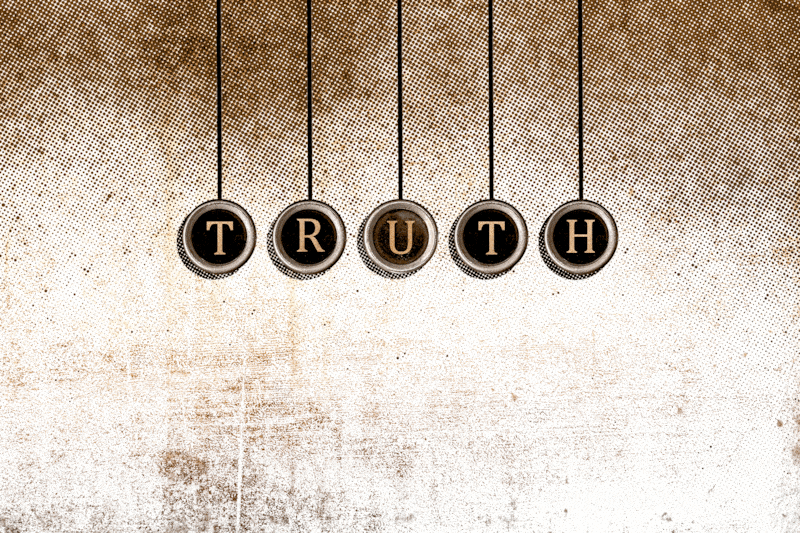SALT LAKE CITY — Whether an American trusts a news outlet largely depends on whether that person is a Republican or a Democrat, according to a new study by the Pew Research Center. The study, which asked about respondents’ trust in 30 different news sources for political and election news, found that Republicans viewed most of the media sources as untrustworthy, while Democrats saw most of the same sources as credible.
“Over the course of our research over the last several years, there’s been strong evidence of this dramatic and in many cases growing divide between Democrats and Republicans in their views about the news media, in the sources they are trusting, and in many cases the sources they are turning to for their news,” said Amy Mitchell, director of journalism research at the Pew Research Center.
Only seven media outlets generated more trust than distrust among Republicans, including Fox News and talk radio programs of hosts Sean Hannity and Rush Limbaugh. Responses from the Democrats were almost exactly reversed: only eight outlets generated more distrust than trust — including Fox News, Hannity and Limbaugh.
“You see almost a mirror image across the two parties when it comes to trust versus distrust of the same sources,” said Mitchell.
In addition, the study found that only one source — Fox News — was used by at least one-third of Republicans for political and election news in the week measured by the study. By contrast, at least one-third of Democrats received political or election news from five different news sources during the same time frame: CNN, NBC News, ABC News, CBS News and MSNBC.
The news Americans receive in the coming months will have an important impact on the decisions they make in the voting booth. Yet, there is not one news source that can manage to earn the trust of more than half of Americans — the study found that none of the 30 sources is trusted by more than 50% of all U.S. adults.

Fox News ‘towers above all others’
Over the past five years, partisan polarization in the trust of media sources has widened, according to the Pew survey.
“Republicans have grown increasingly alienated from most of the more established sources, while Democrats’ confidence in them remains stable, and in some cases, has strengthened,” the study states.
Pew compared the results of this survey with a similar study conducted by the Pew Research Center in 2014 and found that Republicans’ distrust increased — with significant growth in Republicans’ feelings of distrust towards The New York Times, CNN and The Washington Post.
The presidential election of Donald Trump contributed to this widening divide, said Mitchell with the Pew Research Center.
“We see that the gap between Democrats and Republicans in terms of their trust of the media grows dramatically following the 2016 election,” she said.
But the growing divide can be also attributed to trends that predate the Trump era, said Al Tompkins, senior faculty at the Poynter Institute, a Florida-based nonprofit journalism school and research organization. Specifically, the fracturing of the media landscape caused by the the rise of the internet spurred the proliferation of countless news sources, making it easy to pick and choose the outlet that corresponds most closely to your worldview — and to ignore the others, he said.
While the survey showed that Republicans expressed distrust toward many media outlets, Republicans’ trust in Fox News shined clear through the survey results, with two-thirds of Republicans saying they trust Fox News as a source.
“In the more compact Republican media ecosystem, one outlet towers above all others: Fox News,” the study stated. “It would be hard to overstate its connection as a trusted go-to source of political news for Republicans.”
Among Democrats, CNN was as trusted as Fox News among Republicans: 67% of Democrats said CNN is a trusted source.
A higher obligation?
The survey should be taken with a grain of salt, said Tompkins. The notion that some people identify some news outlets as trustworthy or distrustful of others is nothing new, he said.
“American media has been far more partisan in the past than it is right now,” he said.
The skepticism that some media outlets are biased against one’s own political views is rooted in the history of American journalism, he said. Before the 1830s, many U.S. newspapers were aligned with a political platform and named themselves accordingly: The Press Democrat, The Federal Republican.
“There’s this tendency to believe that we’ve crossed some sort of rubicon, that we’ve never been here before, that we’re more divided than ever, and I just don’t believe that,” he said.
That said, news consumers shouldn’t put their trust in a media outlet because it affirms their beliefs, but because the news organization is committed to seeking the truth — even if that truth challenges their worldview, said Tompkins.
In addition, news organizations with extremely loyal viewers — such as Fox and CNN — who may rely exclusively upon one outlet as a singular source of news and information, have a higher obligation to their viewers, said Tompkins.
“Those news organizations have an even greater responsibility for accuracy and fairness, because their audiences are relying on them for such a substantial part of the picture of whats going on,” he said. “It’s even more incumbent upon them to be inclusive and evenhanded.”


